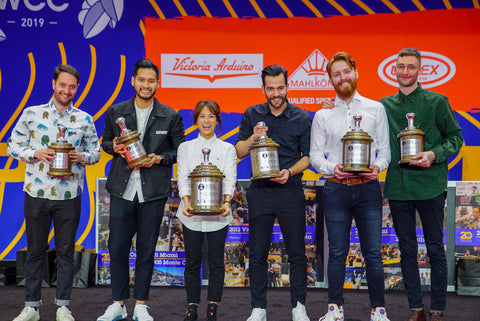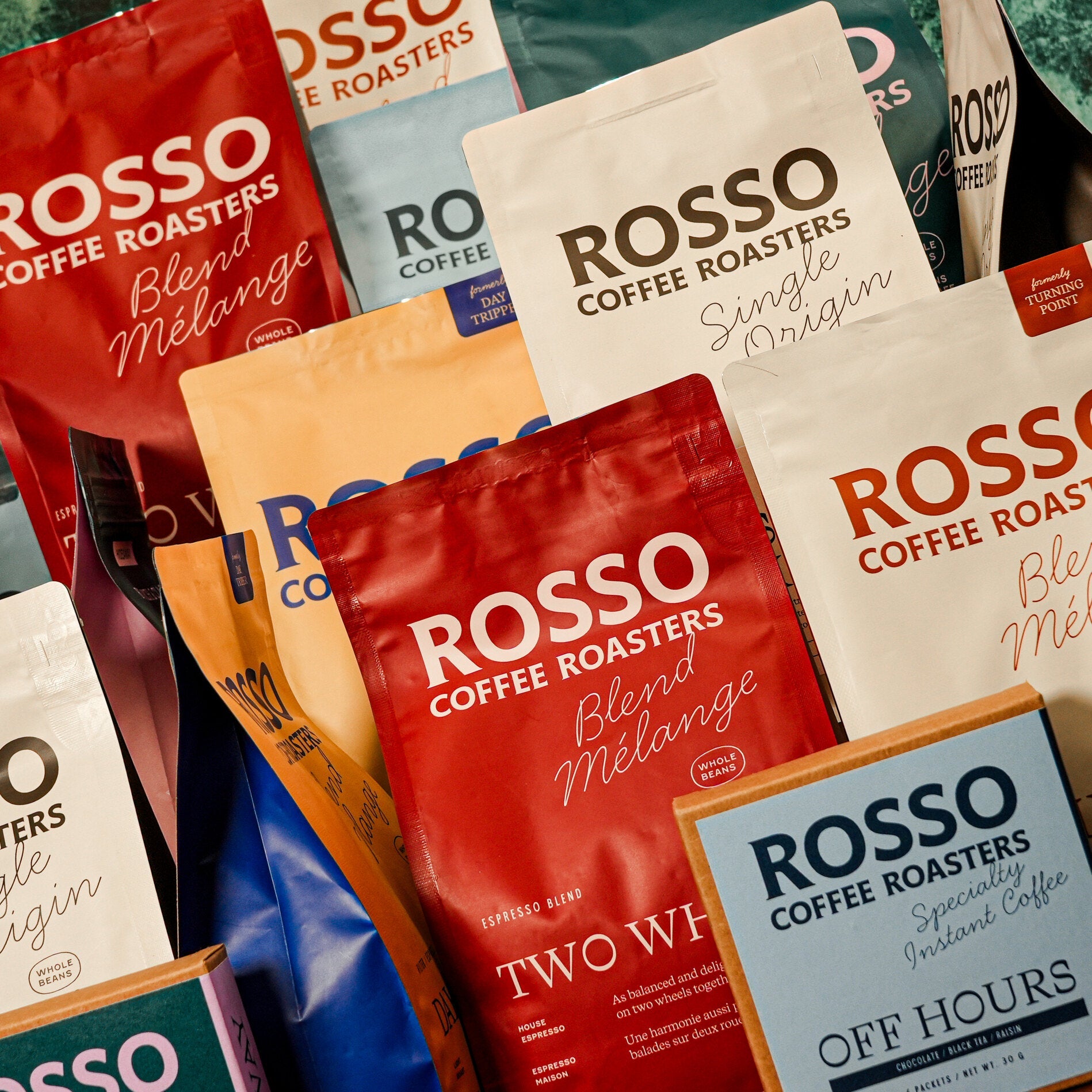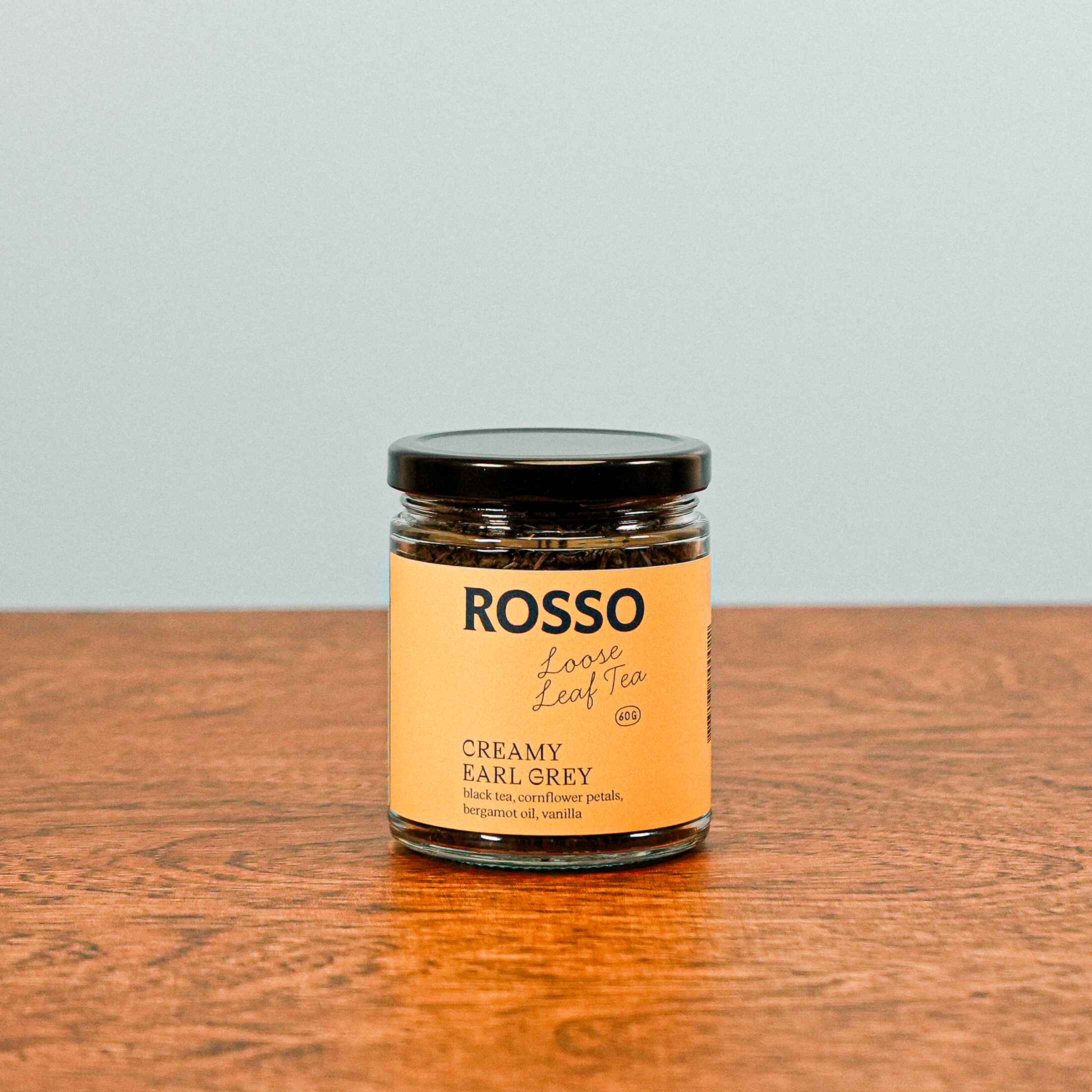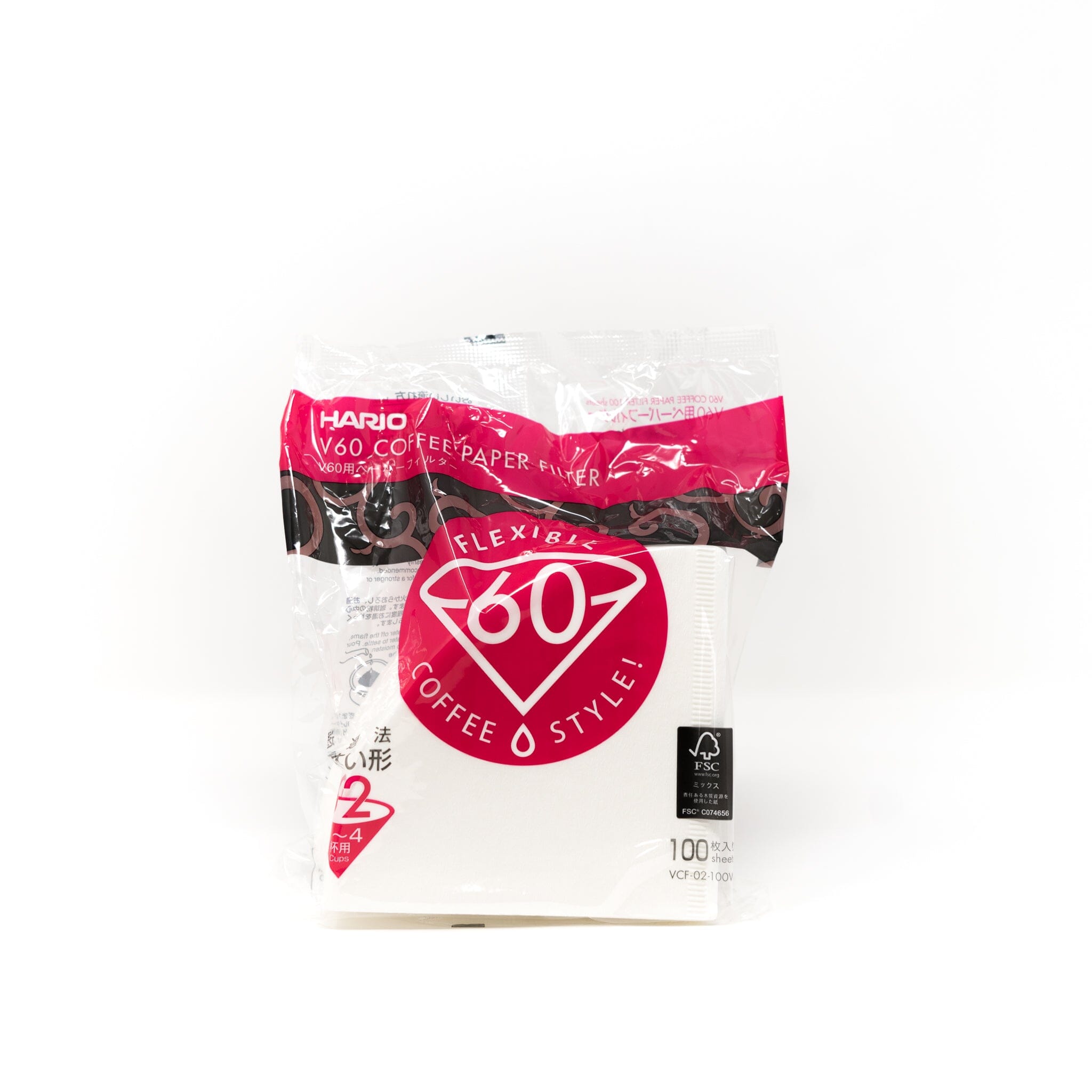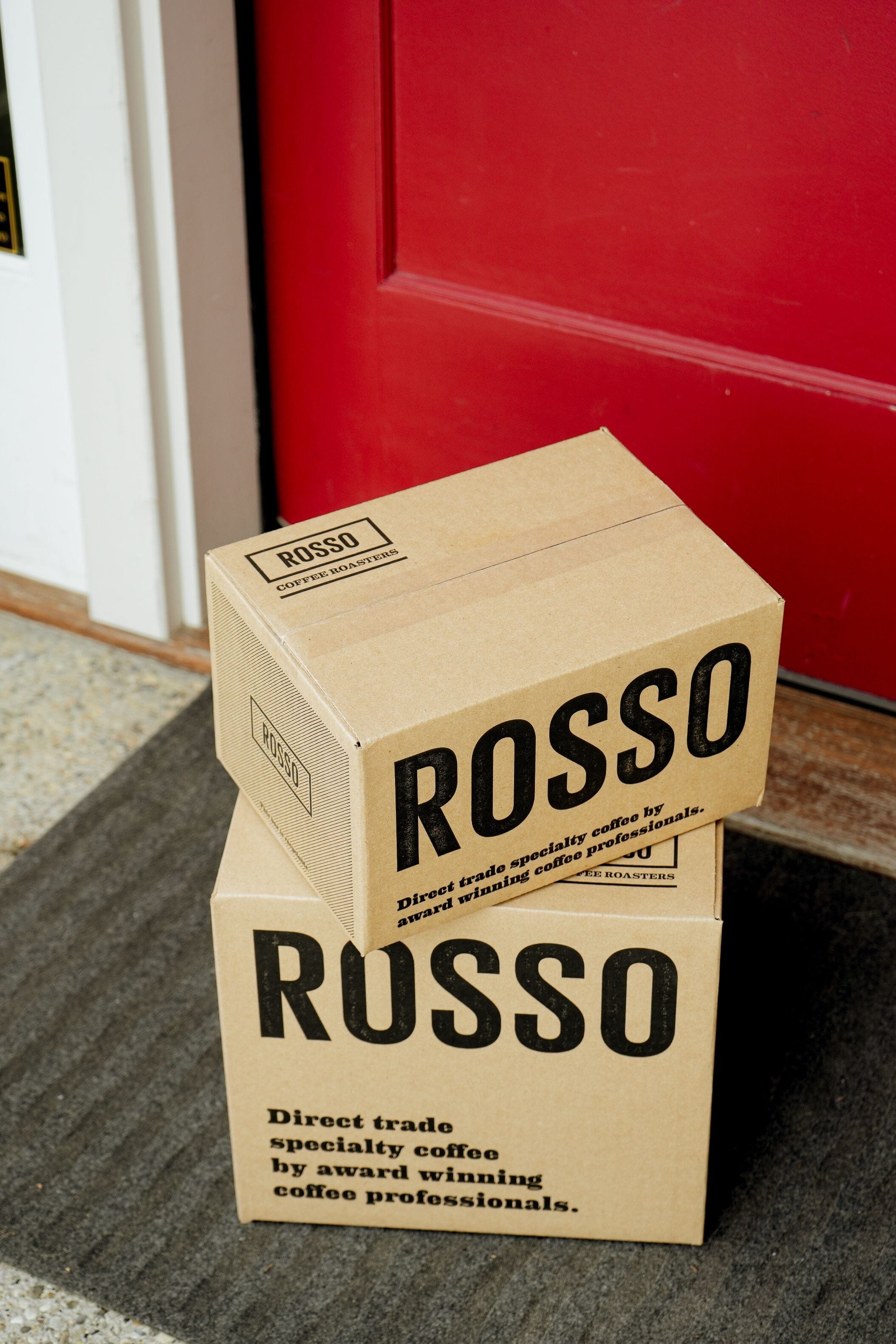Barista Competition
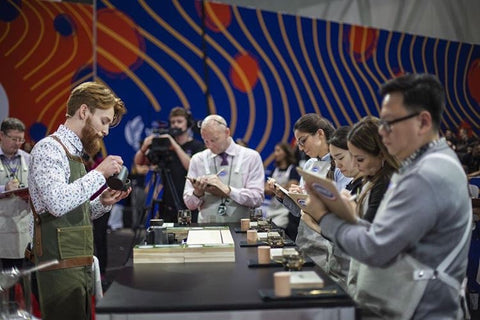
Original journal entry written March 19th, 2018.
Additional content added below on April 25th, 2019.
Listen to Cole talk about Barista Competition
March 19, 2018 - This year marked my eighth year of barista competition. Up until yesterday, at the Eastern Regional Qualifiers, I had never won a coffee event I competed in. Although coming close many times, there always seemed to be something that held me back from the number one spot. I thought I'd take a moment to share what I've learned over the years and why I keep coming back.
For those who aren't familiar with barista competition, or those who haven't heard me geek out on the in's and out's of how it works, here's a quick summary for you. The over arching concept is to present a specialty coffee to a panel of four sensory judges. The barista is given 15 minutes to do so, and in that allotted time, they must serve an espresso course, a milk course and a signature beverage, to each of the sensory judges - meaning 12 drinks total. In doing so, it's required to share insight into this coffee. Scoring is mostly based on the flavours presented by the barista and the correlation each judge finds with the beverage served. While doing this, two technical judges follow your every move and take note of any inconsistent movements, workflow or errors you might make during the preparation of each round of beverages. Above the two technical judges and the four sensory judges, you have a head judge, who oversees the six other judges. These judges are all silent, they allow you full control of the stage, the pace, the coffee, the atmosphere and the service.
Barista Competition is maybe comparable to some styles of cooking competitions you see on TV, or some styles of cocktail competitions, but not truly the same as anything else I've personally ever come across. When I tell people I'm training for Barista Comp, they usually think it's about latte art, but that's a different beast in itself - we call that beast, Latte Art Competition. Barista Competition is mostly derived by the sensory evaluation of specialty coffee through the form of espresso.
The premise of Barista Competition is to portray your mastery as a barista and to showcase a coffee that defies the boundaries of coffee and is superior to the rest. It requires far more than an individual. It's the effort of a community. A community that starts at the farm the coffee is grown, right up to the people who help you put together your routine and spend countless hours watching you act through it. It's important to have an all encompassing grasp on a coffee. From seed to the cup of espresso you end up serving your judges. The baristas that seem to have success in competition, year after year, have relationships with the producers who are growing their coffee, or relationships with the people that have relationships with those producers, and they have an extensive knowledge of what happened on the farm level and how that correlates to flavours in the cup. Then, they have a relationship with the roaster who profiled that coffee and an understanding of how that roast brought to life the flavours that were created at the farm. Through the varietal, the terroir and the processing technique. After that, a barista's skill is demonstrated on how they can best extract those flavours using an espresso machine provided by sponsors of the World Barista Competition - currently Victoria Arduino Black Eagles.
There's so much learning to come from competing in one of these competitions and the community that shows up the day of the event is always amazing. Even though sixteen or so baristas are facing off throughout the day, the support and excitement from one competitor to the next is unbelievable. At the end of the day, you have a room filled with passionate coffee professionals who get excited at the thought of new flavours in coffee, the thought of new techniques, or innovations, the idea that you're using some funky ingredient in your signature drink - wow that sounds good, do you mind if I taste that?
In my experience, Barista Competition has really dictated what we've become as a company. The first few times I competed, I didn't have much of an idea of what I was doing as a barista. I enjoyed what I did because I got to have interactions with people day in and day out while I fuelled them up for the day. While doing this, I got to attempt different designs through latte art and had fun with that aspect. Rarely did I drink coffee black. Today, I rarely drink coffee not-black. Kind of funny, right? It was through competition that I really started to realize the possibility of flavour that was in coffee and a good portion of how that flavour is perceived is dictated by me, the barista.
From the first few competitions I did, I took the Technical Judges feedback to heart. I realized I wasn't consistent in my movements as a barista. I'd knock a portafilter to settle the grinds one time, then I'd slap the portafilter with my palm to settle them the next, and on the third I wouldn't settle them at all. This changes how much space sits between the grinds and how even the grinds sit in the basket before tamping, which in turn changes the way the water interacts with the grinds and thus affects the flavours you'll find in the cup. I wanted consistency in my movements to appease these Technical Judges for next year, at the next competition, but also for the clients that I was fuelling on a day-to-day basis. It sounds dorky, but this sort of consistent mentality became the fundamentals of our barista training program at Rosso. Aside from quality, we want consistency to be a word associated with the coffee at Rosso. Regardless of location, regardless of barista, we strive for consistency. It's only fair to set the standard and to meet it every time for our clients.
The next desire was to appeal to the sensory judges, something that was hit or miss, depending on the coffee I had available through the handful of roasters that we'd worked with in the early days. We found frustration in lack of options on menus, inconsistency on roasting from batch to batch and, the fact that we were just regurgitating information we were told about a coffee without knowing deep down what it truly meant, or whether it was factual. This, as well as other reasons, led to our desire to begin roasting coffee, and in 2011, Dave and I did our Q Grader. That gave us more understanding of the coffee industry and put more control into our hands. We could create our own menu by purchasing coffees from green coffee importers and we could profile these coffees however we desired. This made consistency tough, as we were learning how to roast and there were lots of ups and downs during the learning process. In the long run, it's completely changed the landscape of our business, our approach to coffee as a whole and our perspective of competition.
In 2011, I competed for the first time. Bullshitting my way through a routine, I tried to present a coffee while knowing nearly nothing of what I was doing.
In 2012, I came fifth in the Prairie Region Competition, just shy of qualifying for Nationals. Then I found out that one of the top 4 wasn't going to the Nationals, and therefore was invited to compete at Nationals for the first time. At this point, we were a very small team and I flew across the country to compete in Toronto by myself. I had an Anfim grinder that I carried on the plane and two suitcases filled with glassware and clothes. I put together a super cool set using a Natural Guji from Hasbean out of the UK and managed to place top 6 through the first day and qualify for the finals. While driving to the barista party that night, I received a phone call letting me know the judges had missed a rule that had been brought to their attention and this affected the scoring of a few of my drinks, bumping me out of the finals the following day. The was a tough pill to swallow, but absolutely motivated me to come back next year.
In late 2012, we installed a Probat L12 at our original Ramsay location - at the time we had three cafes and we solely roasted for internal consumption.
In 2013, we managed 3rd in the Prairie Region Comp and competed at the National Barista Championship in Vancouver using a washed Bourbon from El Salvador, grown on the Santa Ana Volcano at a farm called Majahual. This coffee was purchased from an exporter. It was bright, tasting like lime and lemongrass, with some great toffee-like sweetness. It was worthy of qualifying for the finals, and ultimately garnering 2nd place that year - pretty fulfilling redemption moment after the 2012 incident.
In 2014, we had an amazing washed Ethiopian coffee to showcase at Nationals. It was called Kore Kochere - another coffee we bought from an exporter - and it was delightful. I had a super cool routine that I was proud of, but had poor execution on my tasting notes. My judges also didn't connect with what I said, resulting in low points and not qualifying for the finals. It was tough to follow a 2nd place finish from 2013.
At this point, we'd been roasting for just over two years and were itching to understand what actually went on at the farm and how a washed coffee was different to a natural. On a business standpoint, we had the opportunity to travel with an industry peer and mentor. Thus, we went on our first coffee sourcing trip, visiting Costa Rica and Guatemala. I'm currently sitting in Guatemala as I write this, finalizing our selections for our fourth consecutive year of purchasing coffee direct from here. Tomorrow at 6am we fly to San Jose, Costa Rica to do the same there. It's amazing to think I'm truly here because of the platform of Barista Competition.
Today we're able to select the coffees we want to showcase on our menu. We truly understand how they're produced; while at the same time, we're able to find really unique and outstanding coffees that can be used for the platform of Barista Competition.
In 2015, we had three coffees from the Don Joel Micro-mill in Costa Rica that we used on the National stage of Barista Competition. This was a challenge as you can only use two grinders. So during the 15 minutes time allotment, I had to swap hoppers and shift grind settings to make it work. I did not qualify for the finals as I scored zeros on my milk beverages for breaking a rule. *I read the rules very thoroughly these days.*
In 2016, there was no National competition due to the timing of Worlds. So we had loads of time leading up to 2017. We decided to source from an amazing farm in Colombia, of whom we had met one of the team members during a sourcing trip in Bogota a few years prior. We had an incredible coffee from La Palma y El Tucan, a variety called Gesha. It's a coffee complex and heavily perfumed with aromatics, sweetness, florals, you name it. It tastes nothing like 'coffee'. This Gesha had also undergone a unique style of processing that required two stages of fermentation and 86 hours total - way different to a normal coffee that sees about 8-12 hours of fermentation on average. Thus, an interesting story, an interesting flavour profile, and an interesting coffee to share for Barista Competition.
This coffee helped us garner 3rd place in the 2017 National Barista Championship.
It's amazing that our entire progression as a company has happened simultaneous to Barista Competition. I can say that I wouldn't know as much as I know today without having dedicated the energy to competing year after year - even knowing that some years I didn't have a shot at winning. Our training program, our coffee program and our goal of consistent coffee is a mirror of lessons we've learned through competition.
For any young baristas or cafe owners, I recommend you invest some time familiarizing yourself with Barista Competition. Whether that's just reading the scoring templates, or the rules, or finding a coffee you're passionate in sharing the story behind. It may just take you deep down the rabbit hole that is coffee. At the very least, you'll get to meet the genuine, diverse, amazing people that make up the Specialty Coffee Community.
-
Since writing this article shortly after winning the Eastern Regional Barista Championship in March of 2018, my team and I have gone through a whirlwind year of competition. Here's a short and sweet summary.
In May of 2018, I was crowned the 2018 Canadian Barista Champion. Woah. Please note: it's a team game as I mentioned above, so really WE were crowned the 2018 Canadian Barista Champion. I used two different coffees in my routine. One was a Carbonic Macerated Geisha from Finca Deborah in Panama and the other was a Lactic Gesha from La Palma y El Tucan. Also note: Gesha/Geisha are the same. I've spelt them differently to respect the way the producer spells it and thus why you see a difference here. It's not a typo.
A short three weeks later, we challenged the 2018 World Barista Championship for the first time. We had to fully rebuild the presentation as we had run out of inventory of the coffee from Finca Deborah and had La Palma y El Tucan send us a coffee based of trust, which we shared with the judges. This time, a Gesha and a Sidra. We managed to qualify for the finals and placed 5th in the World!
After that, I thought I'd retire from competition and take a role in judging, or organizing instead. That was a short lived mindset, when in early January of 2019 we had a concept that we were really keen to present and took it to Nationals in March. It was a very challenging and heated competition, and we're humbled to have claimed the title of Canadian Barista Champion for a second consecutive year. It's still crazy to think...
For the first time in Rosso's history, we had two baristas in the finals. Big congrats to Nelson who placed 5th in the Canadian National Barista Championship! Nelson also competed in three other Canadian National Championships, placing 2nd in Coffee in Good Spirits, 4th in Cup Tasters and 4th in Latte Art. Woah, Nelly!
On April 10th - 14th, we participated in the 2019 World Barista Championship in Boston, using a similar routine from Nationals that featured two different Sidra's from La Palma y El Tucan. This presentation was fast-paced, info heavy and told the story of our relationship to this coffee; highlighting the past, through a vintage Sidra - the same Sidra from WBC Amsterdam - which had been roasted and frozen in vacuum sealed bags in November. The present, which was a fresh crop, 2019 Sidra roasted a week prior to the competition; and the future, which was a the signature drink, a culmination of past + present to push Sidra forward, showcasing progression. To me, this presentation summarizes our progression through Barista Competition, and I couldn't be more happy with an improvement in placement from 5th last year, to 3rd this year.
Through all of this, we've connected with so many like-minded professionals from around the globe. That experience and relationship alone is invaluable to us. We're keen to continue competing as a company and to continue bringing our perspective on how to move the coffee industry forward.
As I mentioned above, I think barista's should use the platform of competition to grow and push themselves. It will force you to look outside of your day-to-day roles and to engage with other members of coffee's value chain. You'll find yourself starting to understand all aspects and curiosity will strike. To me, it's a platform that will grow a barista into a coffee professional. If this is an industry you're keen to grow within, I think it's a critical step in progression, personally and professionally. For more info on the different World Coffee Events, you can click here.
If you're interested in watching any of the routines from the 2019 WBC, you can view them all through this link here. Questions? Please feel free to comment below or to email directly :) Can't wait to see what you bring to the competition stage.
Cole
We were humbled to be featured in Barista Magazine for both 2018 and 2019 WBC.
